Earth & Nature: 2 of 10
-
21.
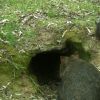 +31
+31Cameras reveal wombat burrows can be safe havens after fire and waterholes after rain
Are wombats the accidental heroes of the Australian bush? After the Black Summer bushfires, we set up 56 cameras to capture animal activity in areas with and without wombat burrows to find out.
-
22.
 +31
+31Meet Max, the cat receiving an (honorary) doctorate from Vermont State University this weekend
The tabby will become a "Doctor of Litter-ature" in recognition of his contributions to the Castleton campus, where he has become a regular visitor for the past four years.
-
23.
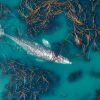 +28
+28These Gray Whales Are Shrinking, and Scientists Aren’t Sure Why
Gray whales in a small group that sticks close to the shores of the Pacific Northwest appear to be shrinking—and shockingly quickly
-
24.
 +28
+28‘My 50-year puzzle of the East Lothian hill where ancient fires burned’
Leading archaeologist Professor Ian Ralston has rewritten the story of Doon Hill in East Lothian, with his long career set to be honoured
-
25.
 +51
+51Snowfall is changing across the globe, new maps show
Snowfall is declining globally as temperatures rise because of human-caused climate change, a new analysis and maps from a NOAA climate scientist show.
-
26.
 +52
+52One of The Biggest Hunter-Gatherers Myths Is Finally Getting Debunked
The enduring idea that men evolved to hunt and women evolved to gather is a relatively baseless assumption that is facing greater academic resistance than ever before.
-
27.
 +26
+26Gobsmacking Study Finds Life on Earth Emerged 4.2 Billion Years Ago
Once upon a time, Earth was barren.
-
28.
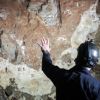 +51
+51The Oldest Known Burial Site in The World Wasn't Made by Our Species
Paleontologists in South Africa said they have found the oldest known burial site in the world, containing remains of a small-brained distant relative of humans previously thought incapable of complex behavior.
-
29.
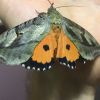 +46
+46We thought we’d find 200 species living in our house and yard. We were very wrong
An ecologist, a mathematician and a taxonomist were locked down together in a suburban house. So they counted all the species of plants and animals they could find.
-
30.
 +27
+27Rocket company develops massive catapult to launch satellites into space without using jet fuel: '10,000 times the force of Earth's gravity'
SpinLaunch is developing a large rotating arm that uses kinetic energy to fling 440-pound satellites into low orbit.
-
31.
 +32
+32The dairy industry really, really doesn’t want you to say "bird flu in cows"
How industrial meat and dairy trap us in an infectious disease cycle.
-
32.
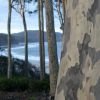 +49
+49The humble spotted gum is a world class urban tree. Here's why
Tall. Straight. Abundant flowers. And a stunning trunk. What’s not to like about the spotted gum?
-
33.
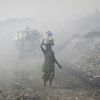 +50
+50The world is awash in plastic. Oil producers want a say in how it's cleaned up
Almost every piece of plastic is made from fossil fuels. Fossil fuel companies, plastic producers and some consumer goods companies could weaken the treaty.
-
34.
 +27
+27Should We Kill Some Wild Creatures to Protect Others?
Two new books take up the ethics of killing some animals to protect others. By Elizabeth Kolbert
-
35.
 +29
+29Can Snakes Really Bond with Each Other and Their Owners? | Rex Colubra
-
36.
 +28
+28The 5 Dinosaurs That DIDNT Go Extinct!
-
37.
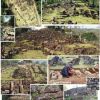 +51
+51Giant Pyramid Buried in Indonesia Could Be The Oldest in The World
A giant underground pyramid hidden beneath a hillside in Indonesia far outdates Stonehenge or the Giza Pyramids and may come to rival the oldest megalithic structures ever built by human hands.
-
38.
 +35
+35Can This Self Aware Dog Talk With Buttons?!
-
39.
 +32
+32Tragic And Mysterious Elephant Burial Ritual Witnessed by Scientists
Asian elephants loudly mourn and bury their dead calves, according to a study by Indian scientists that details animal behaviour reminiscent of human funeral rites.
-
40.
 +35
+35Satellite to ‘name and shame’ worst oil and gas methane polluters
Leaks are driving 30% of the climate crisis and MethaneSat will provide the first first near-comprehensive global view




















